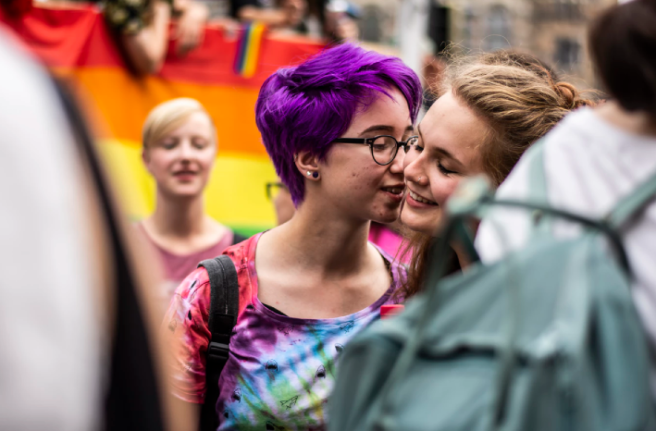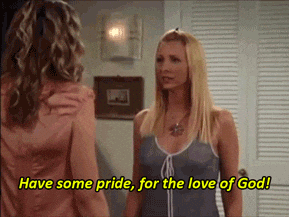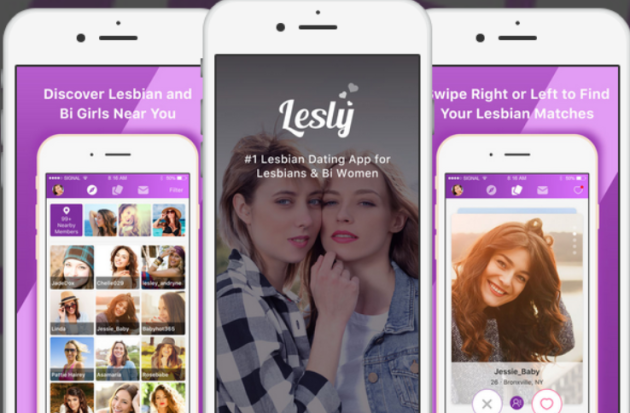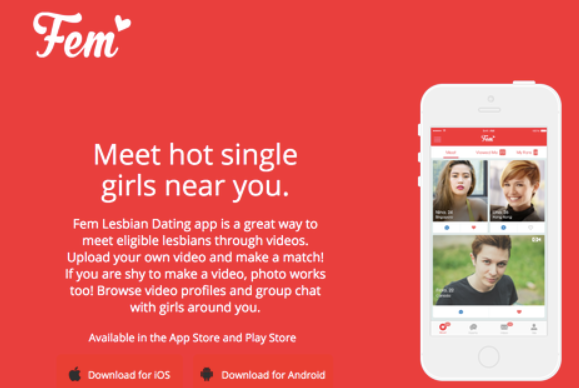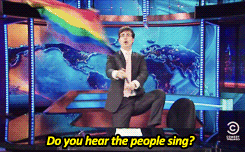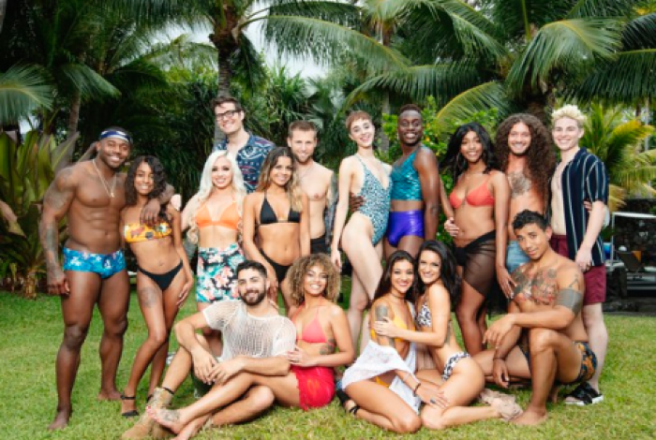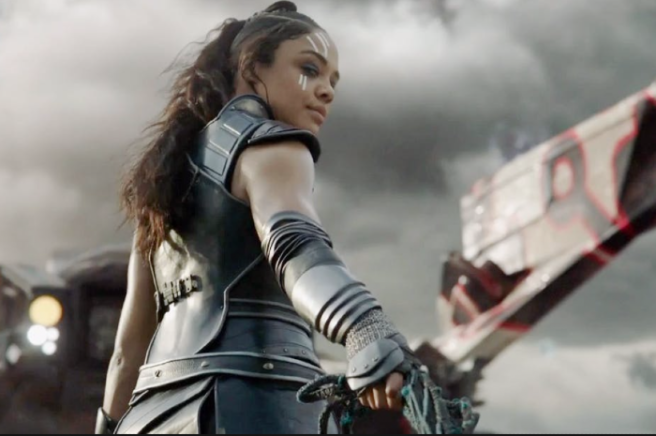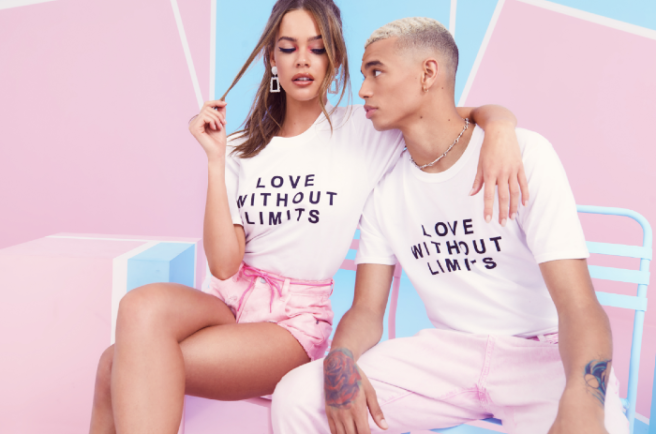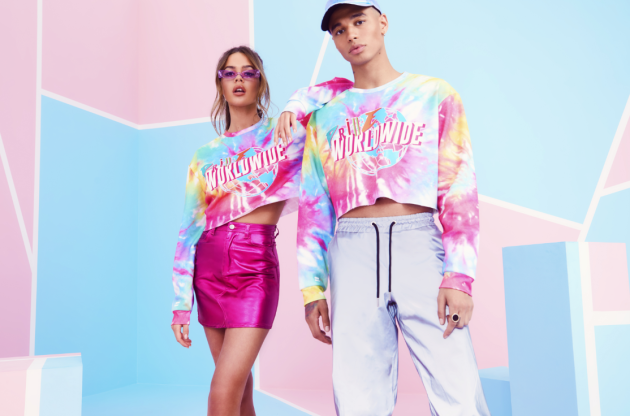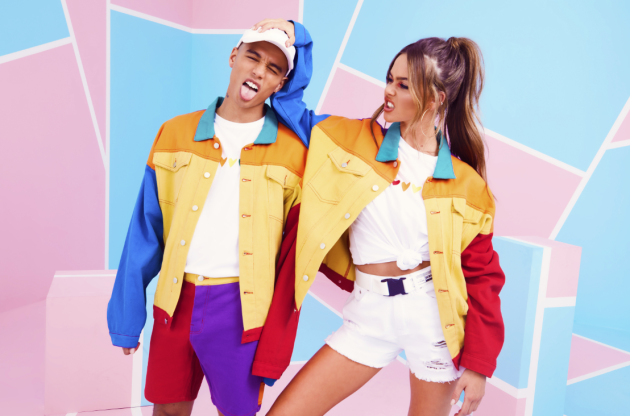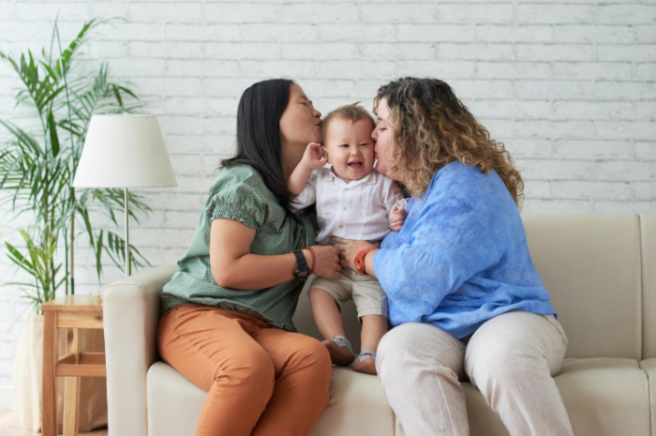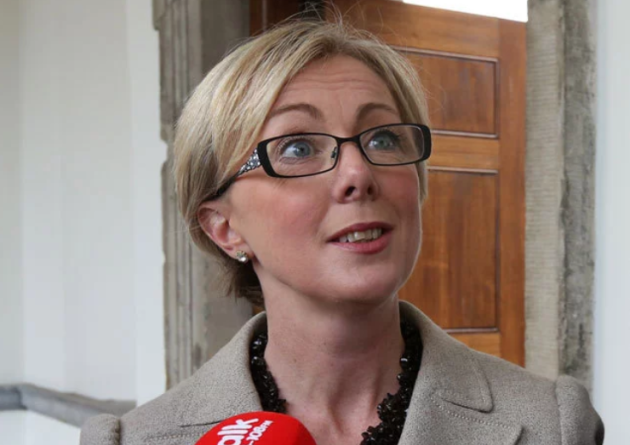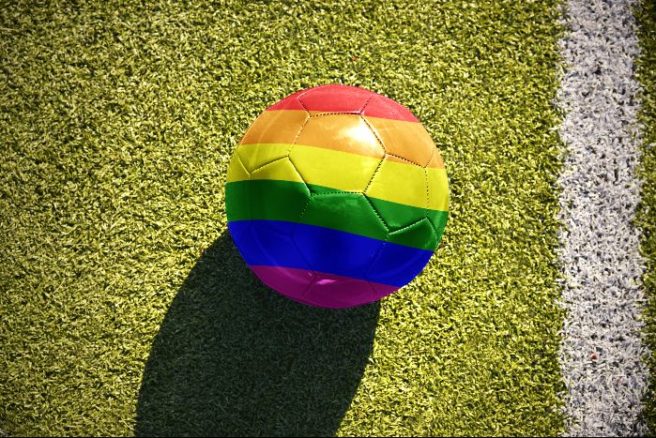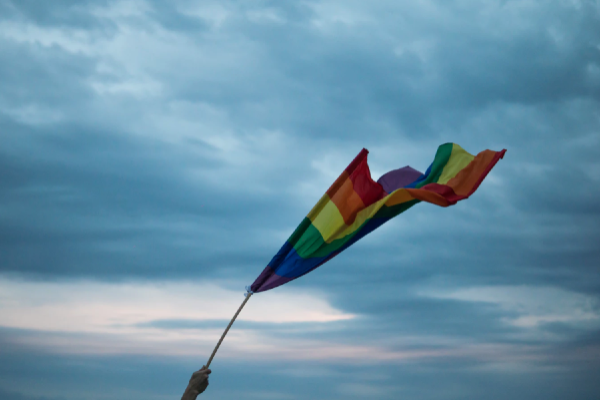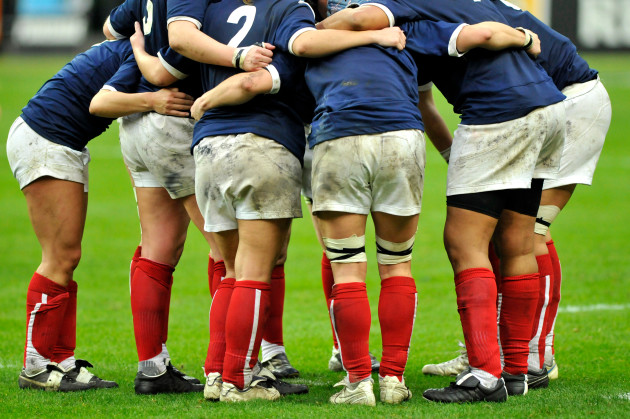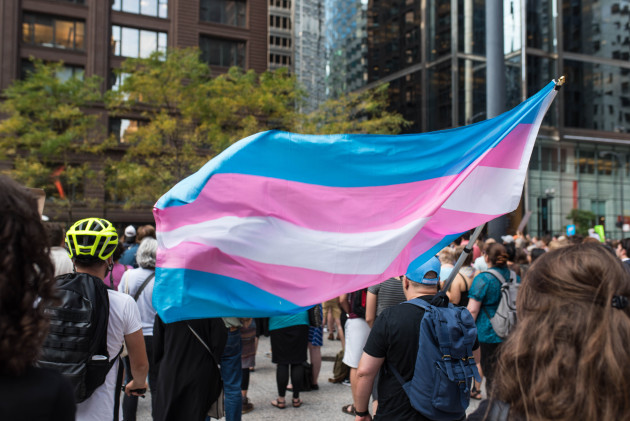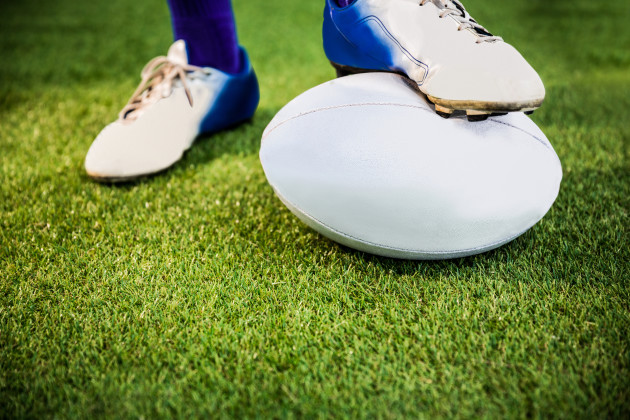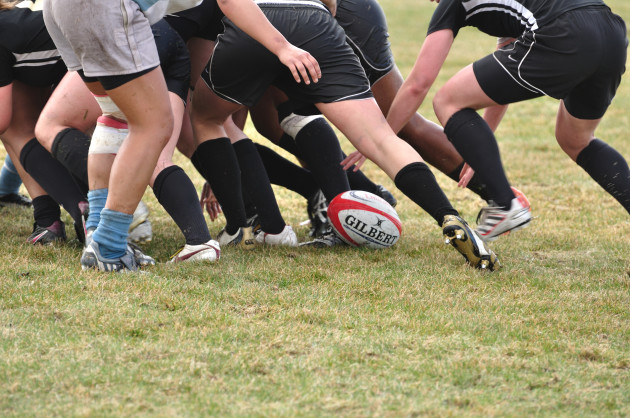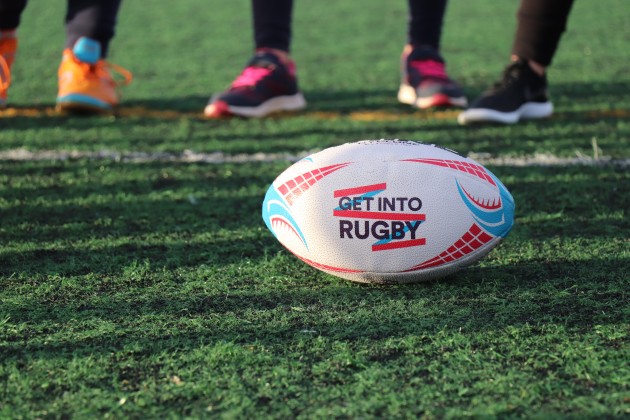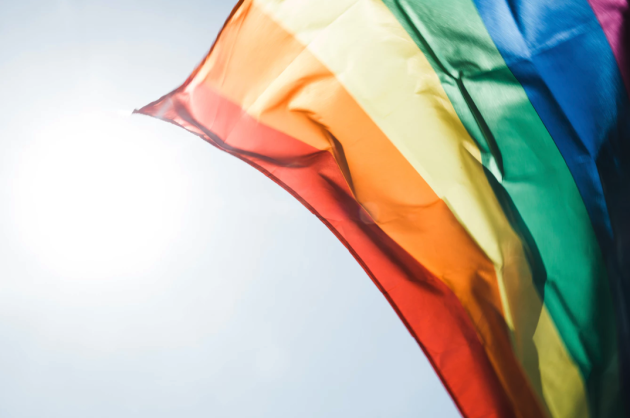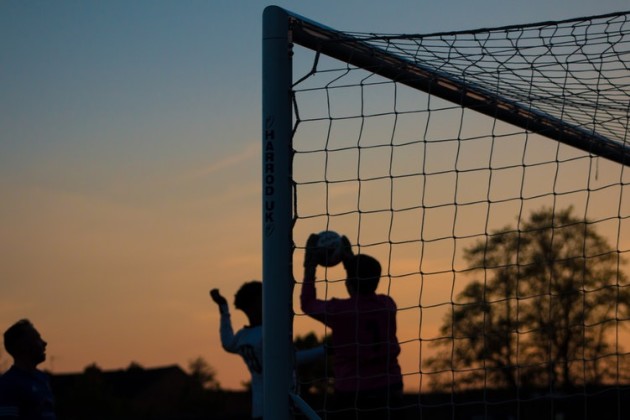"I feel like the term 'queer athlete' is a funny term because it puts sexual orientation before a camp that is more important. We're all athletes, and then we're who we are."
That's some much-needed wisdom from Katelyn, a rugby player who you'll learn more about. I felt I needed to start with this quote because I'll probably throw around the term 'queer athletes' a lot in this piece, simply because it's a bit less tortured than saying 'athletes who happen to be queer' over and over again.
Make no mistake though – I agree with her. She has a valid point about a person's queerness simply being a part of who they are, and sport being an active choice.
One thing I learned through these conversations, however, was that people vary in the way they express their queer identity, and sometimes that expression can impact a their experience as an athlete.
The four people I spoke to in the lead-up to Pride Week are passionate athletes and they're queer. Seeing as it's Pride, I wanted to shine a light on what it's like to be an LGBT person in sport.
Their answers varied, as much as queer athletes do themselves.
Michael Kavanagh
Michael is a trans man, and being trans, his queer identity comes into direct play with how he expresses his identity as an athlete.
He currently plays rugby on women's teams, but once he medically transitions he will have to switch to a men's team because he'll be on testosterone.
The 22-year-old says that sport can be a 'grey area' regarding gender at times:
"While I'm legally recognised as a male, because of my body, my biology and everything, I'm still considered to be in a female league, so I still play on the women's team even though I'm a man.”
The flanker says that he feels a 'bit of conflict' when it comes to playing on a women's team, but that overall he doesn't mind because, "Have you seen rugby women? They are tough. They are tough as nails."
He explained, "I feel very at home with the women on the team and they've seen me grow up, basically. So I'm not uncomfortable with them at all. Sometimes yes, the fact that I'm a guy on a girls' team rubs me up the wrong way.”
However, he feels that before he medically transitions, he’d feel uncomfortable physically on a men’s team, such as in the locker room.
As for as trans athletes in Ireland, the rugby player says he feels bolstered by the fact that trans men are getting great recognition in Ireland, such as the GALAS Sport Award winner Cameron Keighron.
Michael says that trans women have a much more difficult time remaining involved in athletics, though. He thinks the stigma around trans people must be dispelled in order for trans athletes, especially women, to be accepted:
"It's this whole idea that to be taking hormones, or if you were assigned male at birth and you're coming in to play against people assigned female at birth, it's this assumption that male bodies automatically have better qualities and an upper hand compared to female bodies.
"I don't know a trans person who's trying to use their biology to come in and dominate a sport. They just want to play the sport in the team or in the category that matches their gender."
Michael hopes that national sports teams will make an open show of trans-inclusiveness, saying that vocal support coupled with education can help end the stigma around being trans.
For now, Michael will continue playing rugby and move to a men's team when the time comes in his medical transition.
The Emerald Warriors, a men's team, have already told him that he's welcome to join, as they've had men who are pre-, mid-, and post-transition play with them.
When I asked if he had advice for fellow trans men who're athletes, he replied:
"I suppose, my advice would be that you don't have to compromise one identity for the other. I always thought my trans identity and my sporting identity were in conflict, that if I wanted to excel in one I had to subdue the other. And it's just not like that.”
Katelyn and Louise
When Katelyn joined Trinity's women's rugby team during her year abroad, she didn't realise she meet her now-girlfriend, Louise.
They're on a club team together now, with Katelyn, 23, playing flyhalf and Louise, 25, playing flanker.
The couple said that their team is made up of women of a number of sexual orientations.
The main issues they spoke about arose from less from being queer, in their eyes, and rather the expectations around women's place in sport.
"Realistically, most clubs in Ireland – I'm reluctant to include the GAA but I think I have to – are run by men of a certain age, of a certain wealth. And their impression of women in sport is to stay in good shape, to attend the dinner with men – and that's just the way it is!" Louise said.
"We're really lucky that we're definitely not in a club that's like that, and there's a lot of clubs that aren't like that.”
Women's rugby hasn't been given the respect that it deserves for years, especially in the IRFU. Recently, women in the game have been more vocal about their frustration with how the IRFU treats them, but they've also been met with much backlash.
"There's a sentiment for maybe another generation of people in those high positions that see women's rugby players as these angry, unappreciative lesbians who will fight, and fight, and fight, but are angry about a life they've chosen," Katelyn told me.
They said that even in Trinity, the women's team has been continually passed over in favour of the men's team.
Katelyn explained, "The girls that are good in rugby want to go somewhere they're taken care of, like DCU or UCD or Carlow, where they're given coaching and made to feel like they're important.
"That's where the attention needs to be – forget about queer athletes, let's just talk about women athletes. That's really where the difference is."
Louise made the point, though, that image is an area where you can sometimes see a difference between queer and straight athletes off the pitch.
Katelyn said, "I think that is one of the big differences between queer athletes and straight athletes is that, especially in Ireland, straight athletes have an additional game you have to play with keeping up your appearance and almost pretending that you're not an athlete."
"…You’re compensating for how good you are on the pitch because you wouldn't want to be perceived as manly or gay, god forbid," Katelyn imparted.
When I asked for their last words on the subject, Katelyn said that she thinks talking about queer athletes or other groups of queer people can sometimes put a label on something that doesn’t need to be labelled.
Thinking about this, Louise said she'd be interested to see the topic from another angle and understand how straight people perceive queer athletes.
Katelyn concluded, "It's almost like you need to be having the opposite conversation."
Oli Riordan
Oli was an avid football player growing up, and he's kept on kicking as a 22-year-old.
Being bisexual, the striker said that he was comfortable talking about girls with fellow club players growing up and just didn't bring up guys.
Now, though, he's playing on one of Ireland's two gay and inclusive football teams – the Dublin Devils, which welcomes players who are gay, straight, and everything in between. He's been with the Devils going on four years.
They’re heading to the Paris Gay Games in August to represent Team Ireland alongside athletes from other sports as well. Oli told me he’s excited to meet queer people from all over the world.
"It's not just about sports, it's about community and bringing everything together and celebrating diversity. There's going to be an awful lot of social aspects as well as the sporting competition which I'm really looking forward to," he expressed.
I asked if he preferred playing on a team where being queer is a central focus.
"I prefer playing with a gay team just because it's a lot easier, there's a lot less pressure, to just be yourself," the footballer replied.
"When you first come out to a group of people, you're never quite sure how everyone's going to take it. So, being able to turn up to football training or just a kick about and not have that expectation of having to bring it up and having to weather the storm."
He thinks, though, that we have a massive way to go until the presence of queer athletes is normalised in sport, particularly in football. Oli feels that the system needs to change in order to make coming out a viable option for professional footballers.
"The football association in England, their basic approach to it whenever someone goes up to them and says 'Are you going to legislate to make it easier for players to come out?', they say, 'Well, this would be a problem if there were any gay football players'," Oli explained.
"You're talking about tens of thousands of men, and you're telling me that there's not one queer man in that entire – that's not even including the club staff! So I think there needs to be a massive change, especially in football… It has to happen at a club and organisation level."
As for his own experience, Oli says that it can be tough at times being on one of Ireland's only gay and inclusive football teams.
He said, "I think probably the worst thing is how we have to keep justifying our existence as a team, because… every time we're in the press, there are all sorts of people saying, why is there a gay team? You know, it just becomes… it's fatiguing."
Before the interview ended, I asked if he had anything else he wanted to say about being a queer athlete.
He took his time before responding, "I think what I would want to say is that if there are queer people out there who are also into sport, who have been told that they can't be into sport because they're queer, don't lose hope. There are places for you. There are people that will accept you.
"And if I had known when I was younger that one day I would be playing for a gay team and having the best time playing football ever, that would have been really, really great for me to know…
"Whatever sport you're into, you can find a group of people that will accept you. And if not, start your own…
"Whatever city you're in, if you are queer and you love football or you love whatever sport, get a group of you together, play, and you can start your own team. And we'll look forward to meeting you on the pitch."
